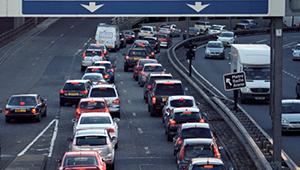By Richard Johnstone | 3 January 2014
The UK’s transport networks remain vulnerable to disruption from periods of adverse winter weather, which could hit economic growth, MPs have warned today.
Examining the readiness of road, rail and airports to deal with snow and storms, the transport select committee said improvements have been made in recent years, including the establishment of a national strategic salt reserve that can be accessed by councils. This followed widespread disruption in the winter of 2009/10, which was the UK’s coldest for 30 years.
However, the committee concluded more could still be done, such as improving the availability of information from both the Highways Agency and train operators on the impact of winter weather and how long delays would last.
Committee chair Louise Ellman said any lack of preparedness for winter weather had a direct impact on the economy by restricting the movement of people and goods.
‘Disruption to transport is not just caused by snow,’ she added. ‘We saw recently the impact of severe storms and flooding on transport services. At Gatwick, thousands of passengers were stranded over the Christmas period due to a power failure during stormy weather.
‘We recognise that some progress has been made by government and transport providers to improve public information and passenger welfare during severe weather. In particular, pro-active decision-making by rail and aviation operators to reduce or cancel services ahead of a major event has reduced disruption.’
Despite recent improvements, a culture of continuous review and improvement of winter readiness was needed, the Ready and waiting? Transport preparations for winter weather report added.
‘The transport sector must work closely with the Met Office and other forecasters to understand the challenges posed by different types of severe weather,’ Ellman said.
‘A year or two of mild winter weather should never breed complacency or lead to a false sense of security.’
Responding to the report, a Department for Transport spokesman said: ‘Transport operators have been working hard to keep the public informed during the recent severe weather, but they should not be complacent and must continue to explore how best to keep the country moving during bad weather.’
The Local Government Association said councils had worked hard to minimise disruption to local roads from storms so far this winter, and had prepared for snow and ice with a stockpile of 1.4 million tonnes of salt.
Economy and transport board chair Peter Box added: ‘While councils are confident about coping with adverse weather, there is a real concern about the damage another harsh winter or continued extreme flooding could have on our road network. This is coupled with the government’s own traffic projections predicting an increase in local traffic of more than 40% by 2040.
‘Such an increase would mean there is an even greater need for increased and consistent funding to invest in the widespread resurfacing projects which our dilapidated network desperately needs if we're to see a long-term improvement and to avoid large-scale disruptions becoming unavoidable.’




















